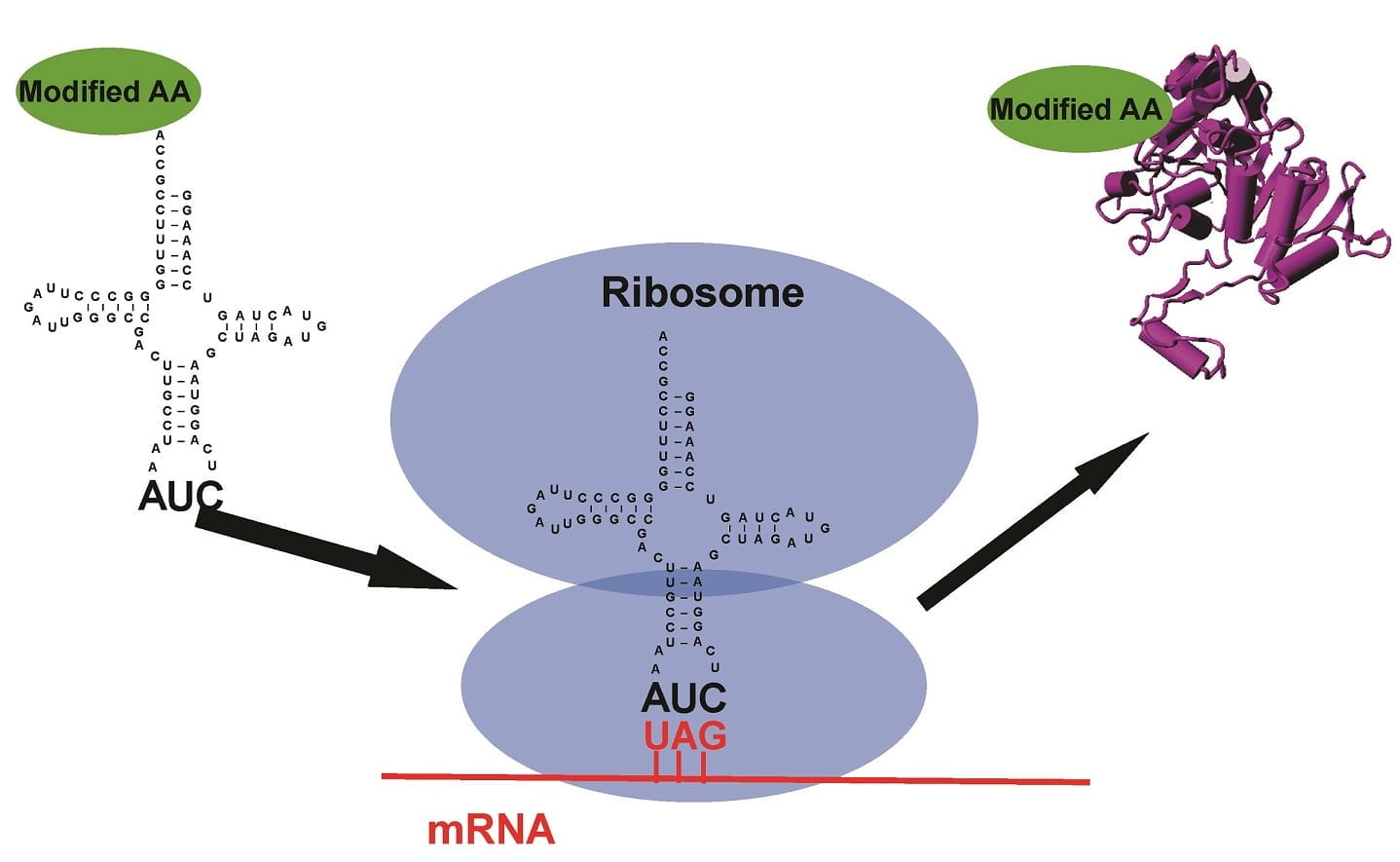
The research interest in our group includes protein chemistry, bacterial pathogenesis, cancer biology, and synthetic biology. The major approach is to use genetic code expansion technique to incorporate noncanonical amino acids into proteins for different studies:
1) Protein chemistry: developing noncanonical amino acid incorporation systems for labeling proteins, studying post-translational modifications, and mapping protein-protein interaction networks.
2) Pathogen infections: applying the genetic code expansion technique in pathogens. Specific topics include studying effects of post-translational modifications in Salmonella toxicity, exploring host targets of Salmonella toxins, and designing small molecules to block Salmonella metabolic organelle functions.
3) Cancer biology: applying the genetic code expansion technique in cancer research, studying phosphorylation and acetylation identified in a variety of cancer cells.
4) Synthetic biology: utilizing naturally designed protein complexes in bacteria as nano-bioreactors for biofuel and chemical compound production.